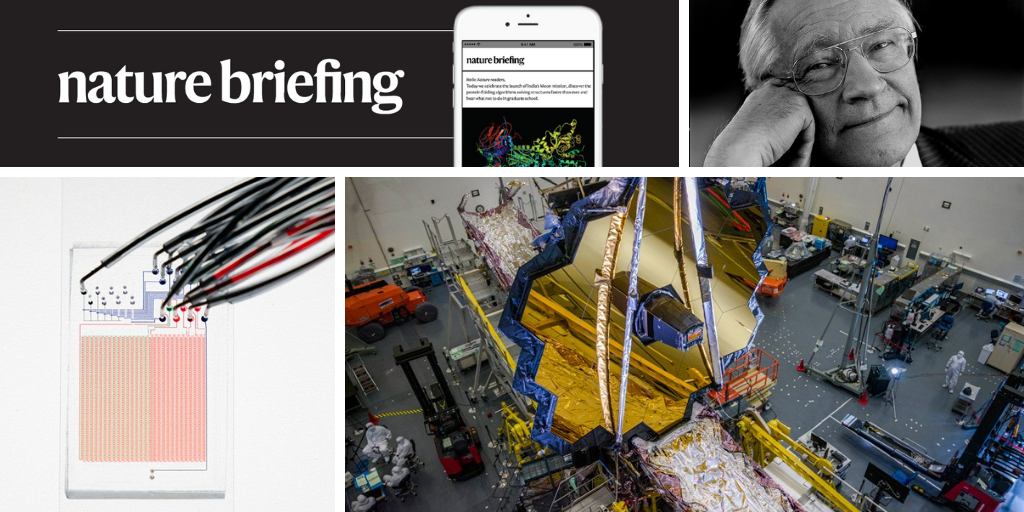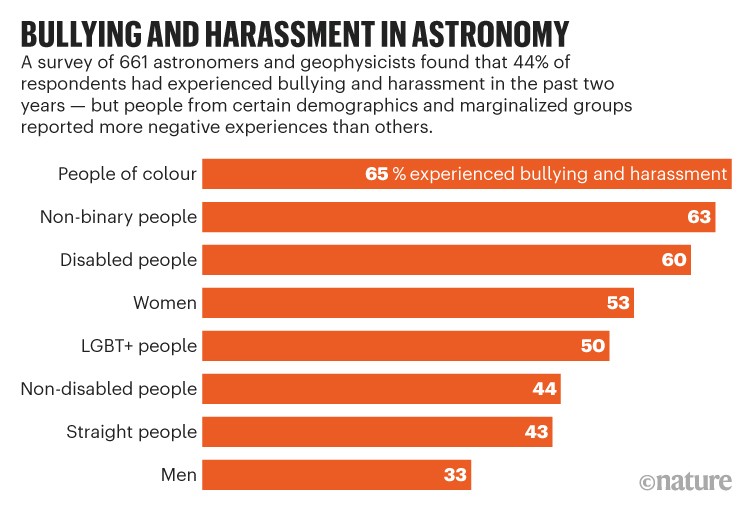Hello Nature readers, would you like to get this Briefing in your inbox free every day? Sign up here.
Uncovering how a protein or enzyme works, and understanding how genetic mutations affect these molecules that are fundamental to life, can take years. A glass chip etched with tiny channels could reduce that time to mere hours by allowing researchers to test more than a thousand mutations at a time. The new system, called High-Throughput Microfluidic Enzyme Kinetics, could provide a faster way for scientists to study disease-causing proteins, develop enzymes that break down environmental toxins and understand evolutionary relationships between species.
NASA is considering renaming its flagship astronomical observatory, the James Webb Space Telescope (JWST), given reports alleging that James Webb was involved in persecuting gay and lesbian people during his career. Webb served as a senior official in several parts of the US government, including head of NASA from 1961 to 1968. The JWST, which will peer into the distant reaches of the cosmos, is NASA’s biggest astronomical project in decades, so the stakes are high.
Bullying and harassment are widespread in astronomy and geophysics in Britain and perhaps elsewhere, according to the results of a survey conducted last year. The Royal Astronomical Society (RAS) polled 661 researchers, more than half of whom were in the United Kingdom. Forty-four per cent had experienced issues in the previous two years. “We knew from anecdotal data and other evidence that there was likely to be a sector-wide problem, and I wasn’t super shocked by the trends of the findings,” says RAS diversity officer Aine O’Brien, “but I was certainly shocked by the extent.”
Researchers have used the gene-editing tool CRISPR — and tweaks to typical rearing practices — to create the first genetically modified opossums. Scientists removed a gene responsible for fur and eye pigment production in gray short-tailed opossums (Monodelphis domestica) to create a litter of albino opossums. They hope to use their technique to gain insights about the marsupials and to study the immune system and common diseases such as skin cancer.
Reference: Current Biology paper
A deadly disease sweeping through coral in the Caribbean seems to be linked to ballast water discharged by ships. The cause of stony coral tissue loss disease is unknown, but it is more prevalent in reefs closer to key commercial ports in the Bahamas, suggesting a link to ship waste water.
Reference: Frontiers in Marine Science paper
Features & opinion
Chemist Richard Ernst turned applications of nuclear magnetic resonance (NMR) into methods for daily use in chemistry, structural biology and medical diagnosis. “As well as gaining him the Nobel Prize in Chemistry in 1991, Ernst’s work underpinned the achievements rewarded by the two NMR Nobel prizes of the twenty-first century so far,” writes biophysicist Kurt Wüthrich. “Mine included.” Ernst also played the cello and was a devoted collector of Tibetan art, which he said helped to keep him inspired. “Science is not the only aspect to life, there are other exciting aspects too and you have to give them a chance,” said Ernst in 2013. He has died, aged 87.
Read more: Learn about NMR from the master in this Q&A with Richard Ernst from 2013 (Nature | 6 min read)









More News
Author Correction: Stepwise activation of a metabotropic glutamate receptor – Nature
Changing rainforest to plantations shifts tropical food webs
Streamlined skull helps foxes take a nosedive